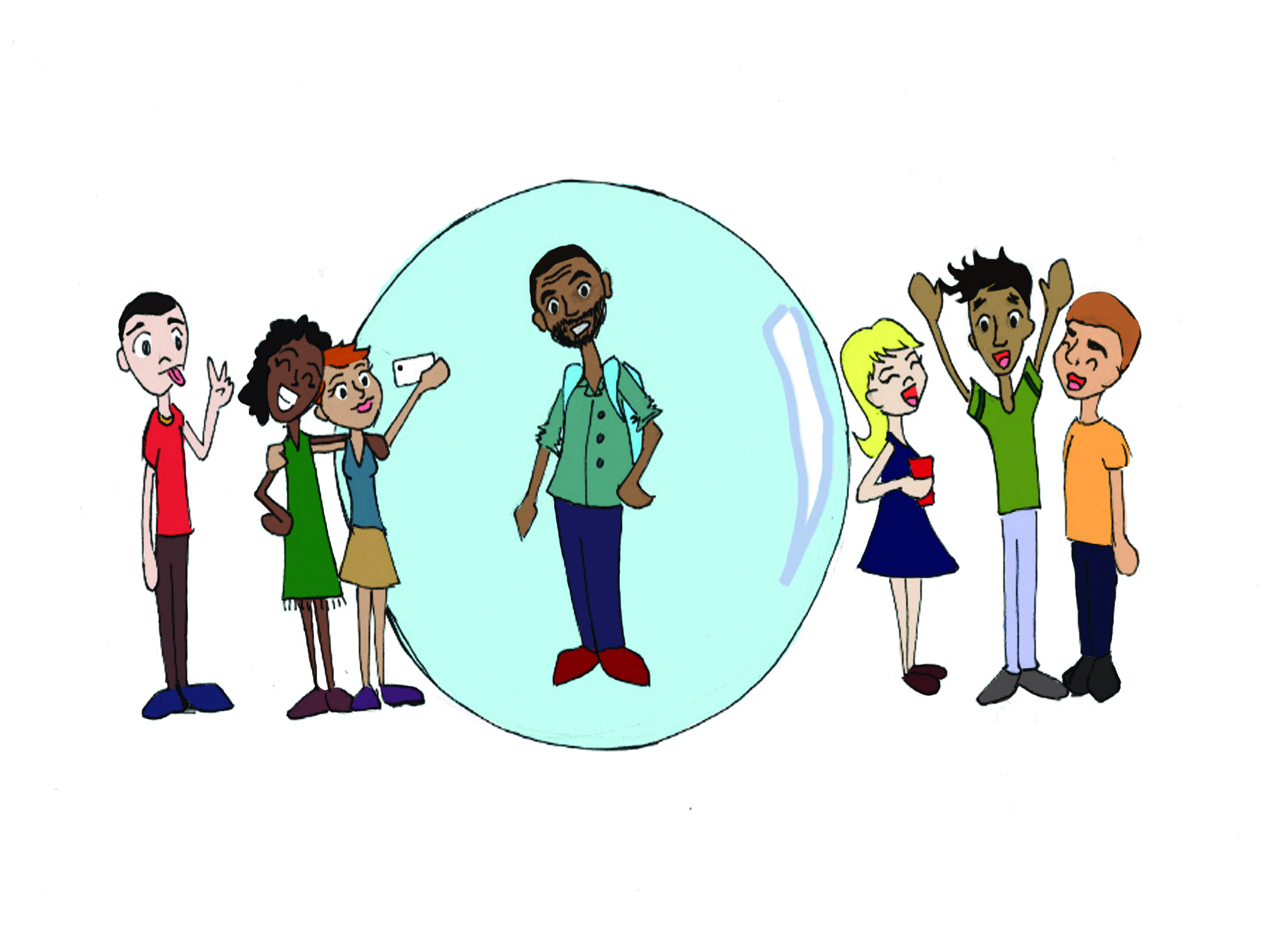Charley Guptill: Older students deserve a more inclusive Bruin experience

By Charley Guptill
Nov. 7, 2013 12:25 a.m.
Studying at UCLA is a young person’s game.
The quintessential UCLA student in most people’s minds will invariably be someone aged 18 to 22. Joe Bruin, certainly, cannot be much older than 19.
This understanding of our campus population should change to acknowledge older students at UCLA. While they don’t fit the stereotypical mold of a college student, they could and should be an influential part of our campus.
Although they constitute about 6 percent of the undergraduate population at UCLA, according to the Office of Analysis and Information Management, students older than 25 aren’t wrapped up in the “UCLA experience” to the same extent as conventional students.
This isolation is both ideological and institutional and begins before older students even apply to the university.
As a campus tour guide, I can vouch for the fact that campus tours are geared primarily toward students entering UCLA directly from high school, with little emphasis on transfer-specific information and virtually none on resources for older students. While covering housing, tour guides discuss the Hill, Greek life and Westwood apartments and rarely mention married student housing or the experiences of commuters.
After applying and being admitted, prospective first-year students are invited to Bruin Day, where the university sets out to recruit new freshmen, offering workshops and important introductions to campus resources.
Bruin Day happens before transfers even receive their admissions decisions.
The first time the university invites all transfer students to campus is for the mandatory transfer orientation, which packs many presentations and class registration into a single stressful day. The transfer event forgoes the fun parts of orientation that freshmen get to experience over their three-day session, which feels a lot like sleep-away camp as opposed to an anxiety-ridden day of conferences and meetings.
Although transfer orientation can be hard for all transfers, students older than 25 or even 30 can feel even more isolated and anxious.
No sessions during the day-long event address issues that older students might face. There is no recognition that older students exist or that their experience at UCLA may be unique and different from their younger counterparts.
“I was shocked that there was no acknowledgement that older students were here,” said Chad Lazzari, a 39-year-old third-year psychology student.
Once on campus, older students can continue to feel out of place.
“I feel like I’m in a sea of young’uns,” said Heather Adams, a 38-year-old fourth-year psychology student. “I love the energy and I love the enthusiasm (of the younger students), but it can be very isolating.”
Older students can feel excluded from or even unwelcome to many of UCLA’s most visible and popular events.
For example, the student section at football games is dominated by students in their late teens and early 20s.
“Everybody goes to football games, and I just want to know what the experience is like,” Lazzari said. “I want to do the whole Bruin thing. It’s part of the culture here.”
Another recent event, UCLA Parents’ Weekend, does not account for students who may be parents themselves. Lazzari said he has not involved his parents in decision-making for over 20 years.
This is not to say that these older students are not welcome on this campus or that they are unhappy with the university. Older students are simply not included in the same way that younger students are.
Adams recently started the UCLA Non-Traditional Students Network to respond to the isolation older students can face when coming to UCLA. The group is geared specifically toward older students and provides a way for older students to help and support each other while making friends and building a community.
The university should take similar steps, attempting to acknowledge and support its older students. Events sponsored by UCLA or activities put on by student clubs need to actively invite older students. Those students need to be afforded the recognition and legitimacy that is so freely given to students who are aged 18 to 22.
It makes no sense that students older than 25, armed with a wealth of life experience, fall outside the traditional audience for a host of programs and activities that compose the “UCLA experience.”
UCLA students should warm up to the idea that Joe Bruin might have been around before 1991.


